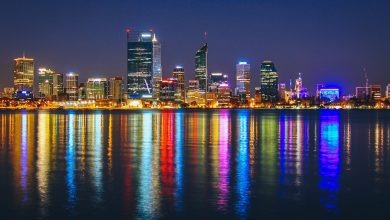
Court ban to fuel hospitality labour boom?
A Federal Court decision that Australia’s ‘backpacker tax’ illegally targets some foreign nationals could lead to a boom in overseas workers looking to work in hospitality roles Down Under.
The levy, introduced in 2017, was found by a Brisbane court to breach non-discrimination clauses in tax treaties Australia has signed with the UK, US, Germany, Finland, Chile, Japan, Norway and Turkey.
The Australian Tax Office is considering whether to appeal the decision and argues it affects a minority of working holiday makers “who are also residents, and only those from countries affected by a similar clause in the double tax agreement with their home country”.
But the ABC estimates up to 75,000 backpackers could be in line for a refund worth hundreds of millions of dollars following the decision.
And according to Tourism Accommodation Australia (TAA) chief executive Michael Johnson, it could prompt an influx of backpackers to help fill Australia’s shortage of hospitality staff and boost tourism spending.
“It is highly likely there will be an increase in backpacker numbers to Australia due to the removal of the tax,” said Johnson.
“This means improvements in the working holidaymaker labour force in regional areas and an increase in the visitor economy as backpackers spend most of what they earn.
“There is also a tendency for them to be joined by family and friends which is another positive tourism and accommodation driver.”
In 2017, the government imposed the controversial 15 percent tax rate on two visa categories for working holidaymakers.
But British backpacker Catherine Addy, who spent two years working in Australian hospitality on a working holiday visa from 2015 to 2017, challenged the tax law under a treaty between Australia and the UK which requires working holidaymakers to be taxed in the same way as locals. Similar agreements are in place with the other seven countries.
During her working holiday, Addy lived mainly in a house share in Sydney’s Earlwood, meaning she was considered a “resident” for tax purposes in Australia. Foreign nationals who move around are generally considered “non-residents”.
“In our view it was very clear, when the tax was introduced in 2016, that it discriminated against foreign workers and breached several international tax agreements,” Taxback.com CEO Joanna Murphy told the ABC.
In his ruling, Justice John Logan described the tax as “a disguised form of discrimination based on nationality”.
Australians begin paying tax once their annual income exceeds A$18,200 – the threshold figure for working holiday visa holders before the advent of the backpacker tax. Workers on 417 or 462 visas are currently taxed at 15 percent on the first $37,000 they earn.
Government figures released in September showed changes to working holidaymaker visas have resulted in 7,000 more second year visas granted in the last financial year than in 2017-18, with more than 43,000 second year visa recipients.
Michael Johnson says the statistics suggests regional businesses are benefiting from the increase.
“Working holidaymakers are an important component of the workforce for Australia’s accommodation providers and this can be particularly the case in regional areas where a sufficient local workforce may not be available,” he said.

AccomNews is not affiliated with any government agency, body or political party. We are an independently owned, family-operated magazine.







